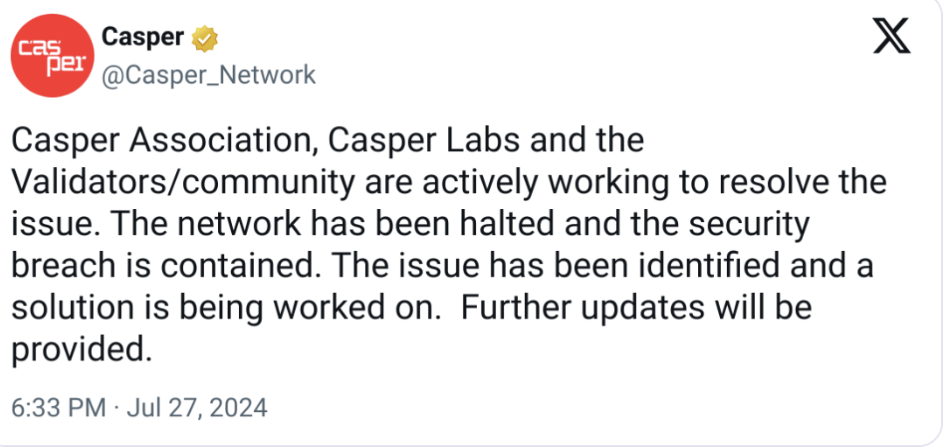Known for its innovative approach to decentralized applications, the leading blockchain platform Casper Network faced a serious security breach requiring immediate action and halted all operations while addressing and containing the breach. The breach was discovered by the Casper Network team, who quickly began collaborating with validators to halt the network.
What is Happening at Casper Network?
This decisive step was taken to minimize the impact of the security breach and prevent any potential attacks. Halting the network guarantees that no transactions can be processed until the vulnerability is fully resolved. Casper Labs and validators from the broader community came together to address the issue. This collaborative effort highlights the significant importance of the Casper Network ecosystem.

According to Casper Network’s official statement, the security breach has been contained. The team identified the root cause of the breach and is actively working on a solution. This approach ensures a comprehensive examination and resolution of all aspects of the breach, potentially preventing future incidents.
At block 3,329,418 in epoch 14544, validators effectively froze activity by halting all transactions, including transfers, minting, and staking. According to an announcement in the Telegram group, a detailed post-process report will be released, and subsequent code updates will be publicly available on Casper’s GitHub repository.
Details on the Issue
The Casper Network incident is part of a growing trend of security concerns within the crypto community. Meanwhile, a leading Indian cryptocurrency exchange, WazirX, was hacked on July 18, leading to the implementation of a user compensation plan. The exchange’s notable 55/45 model allowed users immediate access to most of their funds while further recovery efforts continued.
Casper’s identification of the breach’s root cause contrasts with WazirX, which found no evidence that its signers’ machines were compromised following a preliminary review of the July 18 attack. Instead, a breach in the multi-party computation (MPC) wallet provider Liminal’s system was suspected to be the cause of the $235 million attack.

 Türkçe
Türkçe Español
Español









